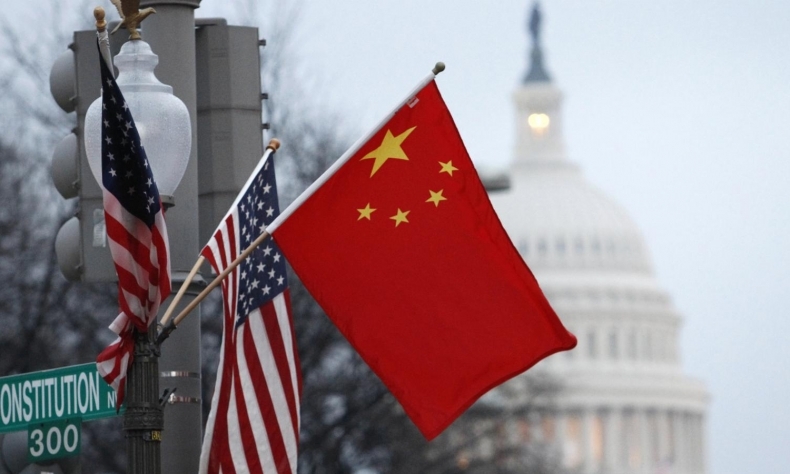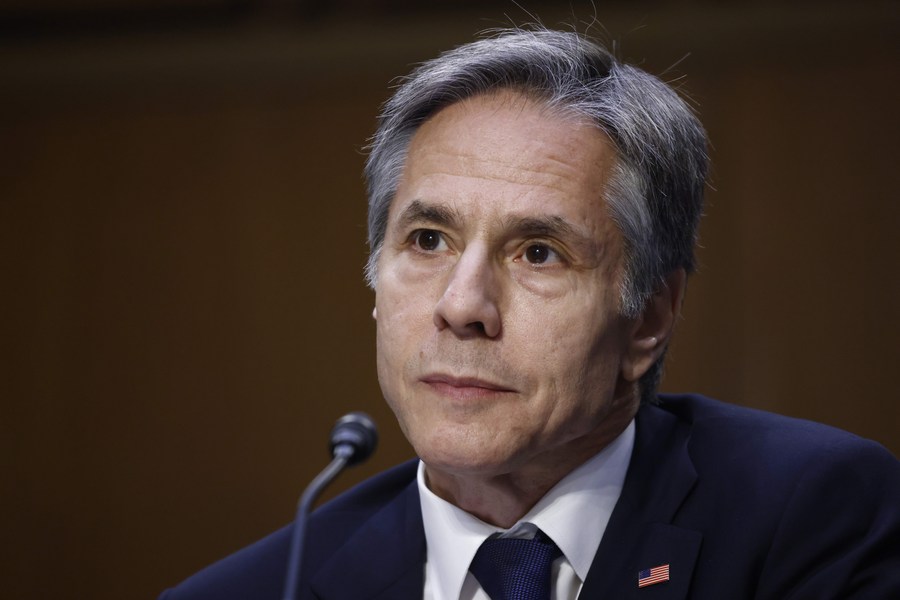China Should Hold Its Own in Face of Shifting U.S. Policy: Expert

The Biden administration has given up the unrealistic notion of bringing China to its knees in the short term; instead, it wants to enter a long-term competition with China.
U.S. Secretary of State Antony Blinken delivered a speech and outlined the Joe Biden administration’s policy toward China on May 26, describing Sino-American relations as “one of the most complex and consequential relationships of any that we have in the world today.” In his words, dealing with China poses the “most serious long-term challenge,” but he also stressed the U.S. wants to avoid “conflict or a new Cold War.”
Li Wei, a professor of international relations at Renmin University of China, told Beijing Review that U.S. officials have long described their strategy toward China as one of “cooperation, competition and confrontation.” Nevertheless, Blinken this time shifted the rhetoric and made it clear that the U.S. will shape the environment around China via an approach summed up in another three words—“invest, align and compete.”
“This means the Biden administration has developed a strategic framework toward China, one in which the country will further invest in its competitiveness, align with its network of allies and partners, and compete with China wherever the U.S. believes China should be contained,” Li said.
He further noted that one of the major changes in the American approach, compared with that of former President Donald Trump, is the emphasis on co-existence with China. Blinken said in his speech: “We cannot rely on Beijing to change its trajectory. So we will shape the strategic environment around Beijing to advance our vision for an open and inclusive international system.”
“This implies that the Biden administration has given up the unrealistic notion of bringing China to its knees in the short term,” Li said. “Instead, it wants to enter a long-term competition with China.”

The professor added that the overall policy toward China has gone from “hysterical irritability, or even anxiety during the Trump era, to a relatively peaceful state.” This does not, however, mean that their bilateral ties can be easily defrosted; it only means that the American Government is gradually adapting to reality, he added.
Biden has inherited Trump’s concept of strategic competition with China and intends to perpetuate it. “We all know the China-U.S. relations cannot go back in time,” Li added. But instead of throwing in the towel, the U.S. will exert pressure on China in an orderly manner through different approaches. The Quadrilateral Security Dialogue (commonly referred to as the QUAD), the trilateral security alliance of the U.S., the UK and Australia (or AUKUS), and the newly announced Indo-Pacific Economic Framework (IPEF), are all examples of these newfangled attempts.
“We need to carefully manage our domestic affairs, develop our own economy, improve people’s living standards, upgrade our own innovation and research and development, and maintain social order,” Li said of how China should respond to the American strategy. China also should “make more friends and build a global network of partnerships, all the while abiding by the principle of non-alignment.”
“Considering that our overall strength is relatively inferior to that of the U.S., we should remain calm and objective—just like we always do,” he continued. As for issues concerning China’s core interests: We have no choice but to resolutely defend ourselves. At the same time, China can conduct practical cooperation with the U.S. in the fields like climate change, global public health security, international arms control and non-proliferation, Li concluded.
 Facebook
Facebook
 Twitter
Twitter
 Linkedin
Linkedin
 Google +
Google +










